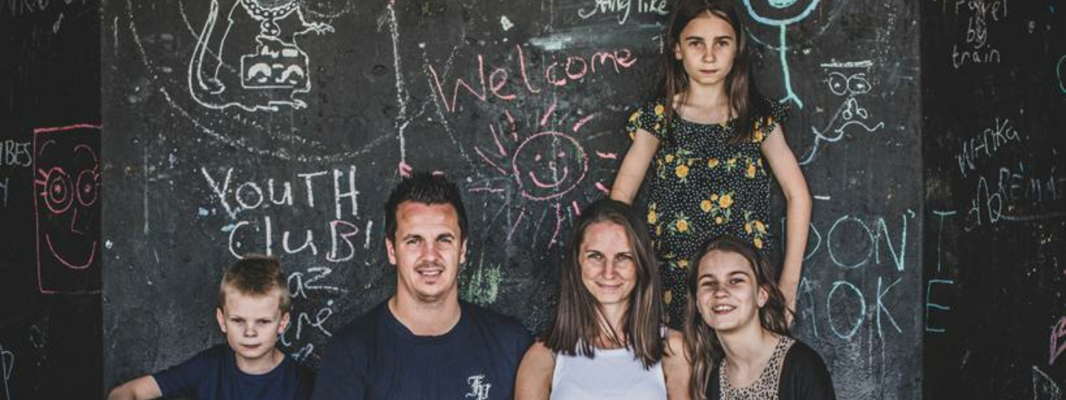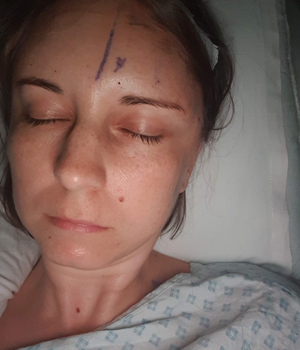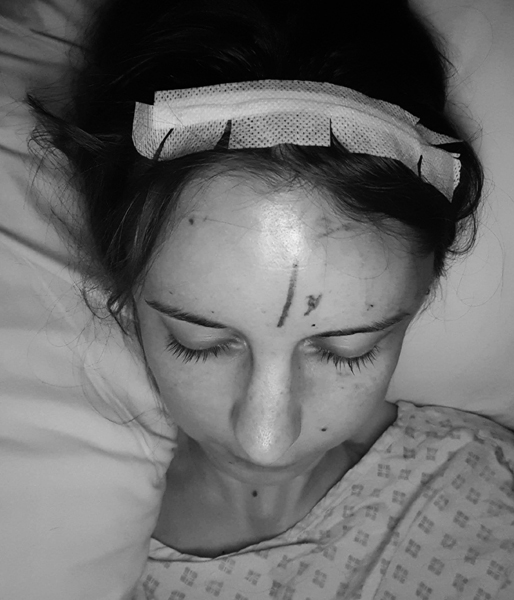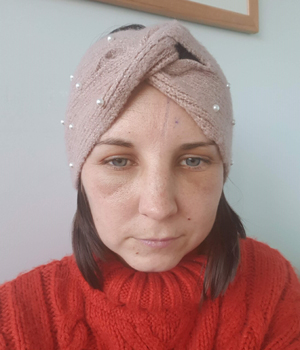Gemma's story
A mum-of-three who first experienced what are likely to have been symptoms of a brain tumour when she was at primary school wasn’t diagnosed until she was 32-years-old.

Gemma Heath from Burghfield Common in Reading had been having headaches and migraines since she was around seven-years-old. Her mum took her to the doctors at the time and she was often given painkillers to manage it.
Her mum also took her for annual eye tests and Gemma also given glasses to correct her vision but, as the years went on, she didn’t have any further problems with her eyes so this also wasn’t investigated further.
As her headaches became more frequent and her eyesight deteriorated further when she got older, she went back to the doctors and was given different painkillers. She also changed her methods of contraception on a number of occasions before coming off it completely as doctors told her she was at an increased risk of having a stroke due to the headaches and her changing hormone levels.
Although the GP asked about Gemma’s family medical history and both her mum and sister also have regular headaches, Gemma was never offered any scans or further treatment to investigate what could be causing them for her. In fact, the GP told Gemma’s mum that she would ‘grow out’ of them over time.
I honestly don’t feel that, as a child, I was ever taken seriously about the severity of my headaches. No other avenues on what could be causing the pains I was having were ever even discussed. So, I had to learn to control the pains myself with hot baths, heat packs, lotions and oils and lots of rest and sleep. It was all that I could do about it.
Gemma
However, in July 2018, Gemma went for her regular eye test at Vision Express in Reading and it was this appointment which would change her life. The optician told Gemma that her left optic nerve was swollen so she was sent to the eye clinic at the Royal Berkshire Hospital the following day.
The specialists there confirmed that both optic nerves were swollen and blurred. Gemma had various tests including a CT scan, an MRI scan and ultrasounds of both eyes. The following month, she also had a lumbar puncture to ease the intracranial hypertension which she was diagnosed with.
The MRI scan also revealed a suspected low grade tumour on Gemma’s brain and, following a craniotomy at the John Radcliffe hospital in Oxford which removed 99% of it, it was confirmed that she had a grade 2 astrocytoma.
Hearing the word ‘tumour’ was incredibly surreal – I just felt numb. I don’t believe the information even really sank in straight away. It wasn’t until I saw the scan images and was discussing next steps with the surgeon that I really understood the huge impact that it was going to have on my life. However, I actually felt slightly relieved that we finally had a reason for the way I had felt my whole life and that I wasn’t imagining things.
As Gemma’s tumour is slow-growing, the doctors said that she may well have had it for a number of years and that the tumour could be attributed to the headaches she was having as a child.
In the weeks leading up to her surgery, Gemma cut down the number of hours she worked but she was determined to keep to a routine and establish a sense of normality for her family, including her three children Lillie-Maude aged 12, Summer-Paris aged 11 and Joseph-Matthew aged 7. She took six weeks off work following her surgery to recover from it.
Gemma said: “I found breathing the most challenging part of my recovery. My chest felt incredibly heavy and even walking across a room was difficult. I had always enjoyed walking long distances – since I was a child this was something I had been able to do with ease.
Finding myself unable to do the school run with my little boy was heartbreaking. I remember attempting to do so in the first week at home after my surgery. My husband held me up the whole way but I was determined to do it! I did it too – encouraged by my little boy, Joseph, who was beaming at me from the school gates.
Gemma
Gemma now has six-monthly scans to monitor her condition and she does continue to have some blurred vision and memory problems, with the next scan due later this month. She takes medication to control her headaches and seizures.
She added: “Without a doubt, the most difficult part of this whole experience is not knowing if I will live long enough to see my beautiful children grow up, get married and have babies of their own.
“We have explained as much as we can to them about my tumour – but they have questions which I still don’t know how to answer because I don’t have that information either. Although I do have some side-effects, I am healthy and I am still here with my husband and three beautiful children so I am grateful for that.”




Gemma first heard about The Brain Tumour Charity from the Macmillan Cancer Support team at the John Radcliffe Hospital. She was sent a welcome pack and also connected on the Charity’s social media channels. She has since done fundraising for the organisation including Conquer the Climb 2020 – an at-home climbing challenge and also the Charity’s flagship fundraiser The Twilight Walk, which is this year being held virtually due to the pandemic.
She said: “I decided to fundraise for The Brain Tumour Charity to help raise awareness of the cause and to give something back to those who have been such a great support to me. Looking through the website and Facebook page and closed groups has been a massive help to me throughout my journey – I honestly can’t thank the Charity enough.”
The Brain Tumour Charity is the world’s leading brain tumour charity and the largest dedicated funder of research into brain tumours globally.